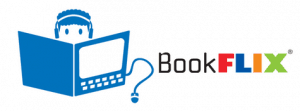calsfoundation@cals.org
Studio Scans at the DIY Memory Lab
For the months of June and July 2025, artists can use the DIY Memory Lab to make high-resolution scans of their 2D artwork! 30-minute time slots are available every Tuesday, Thursday, and Saturday between 3pm and 5pm.
To reserve a time slot, email memorylab@cals.org.
WHAT YOU NEED TO KNOW BEFORE YOU MAKE AN APPOINTMENT
- The DIY Memory Lab is located on the 3rd floor of the CALS Roberts Library (401 President Clinton Ave. in the River Market).
- Time slots are 30 minutes, but back-to-back reservations are allowed.
- CALS Roberts employees will assist patrons with operating equipment and troubleshooting but will not digitize materials for patrons.
- It is NOT required to have a CALS Library Card to use the Memory Lab.
- The process is intended to be DO-IT-YOURSELF with a little bit of training.
- Please note: To save your files, please bring a storage device or log into a cloud storage account (e.g., Google Drive, iCloud). For long-term storage, we recommend using an external hard drive or a cloud storage account. However, a flash drive will also work.
- The flatbed scanner works best with items on thin, flexible material or canvas without frames.
The arrival procedure for the Memory Lab has changed to the following:
When you arrive, please call the Memory Lab at 501.320.5731 and then wait in the CALS Roberts Library lobby and a Memory Lab staff member will meet you there to escort you to the lab on the third floor.
Digitization formats:
- FLATBED SCANNER
- For 2D artwork up to 11 x 14 inches.
- This is a PC environment using a Windows computer.
- OVERHEAD BOOK SCANNER
- For bulkier items, like books or booklets, up to 11.7 inches x 16.5 inches.
Our recommendations for the best scans:
- Scan as PNG or TIFF file types.
- Scan at a resolution of at least 300 dpi. A resolution of 600 dpi or 1200 dpi is recommended if you’d like to blow up the image to a bigger scale.
The CALS DIY Memory Lab Project was established as part of the DC Public Library Memory Lab Network and funded in part by the Institute of Museum and Library Services with continued funding from the Mellon Foundation.






